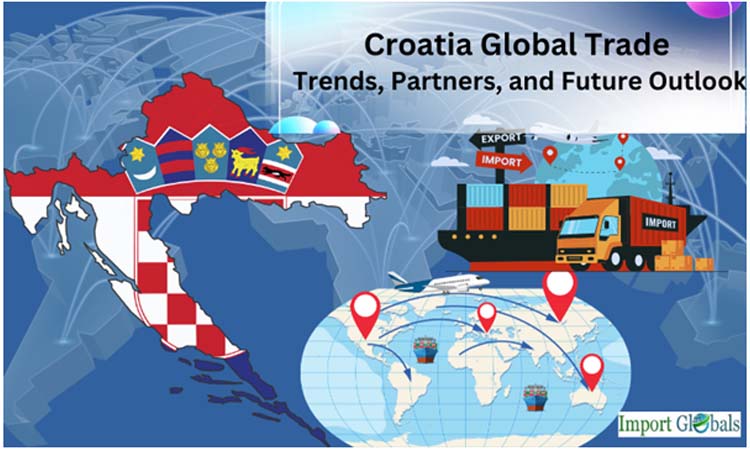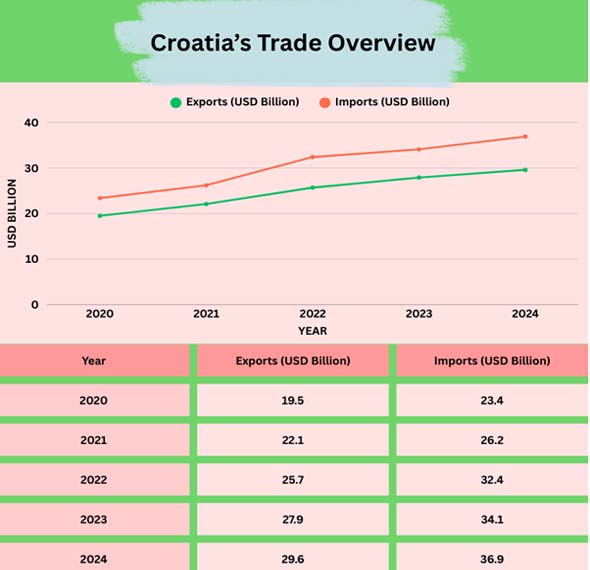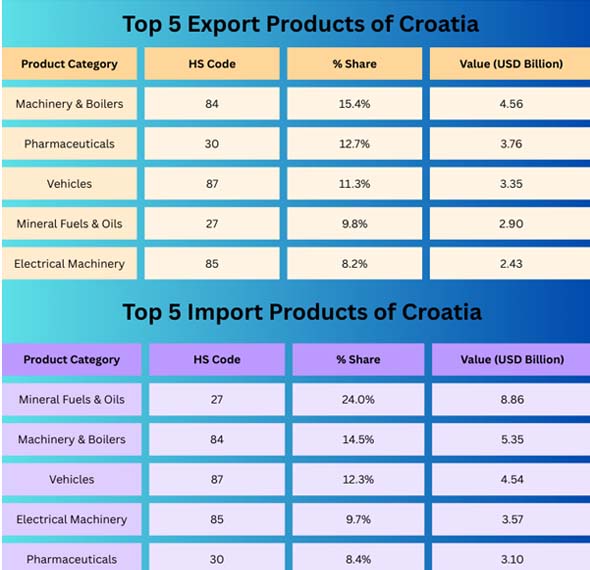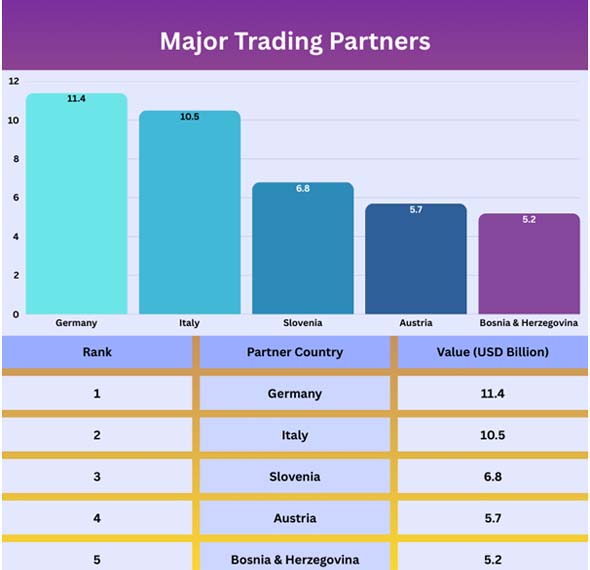
- Oct 28, 2025
Croatia's Global Trade: Recent Trends, Trade Partners, and Future Aspects
It has access to the Adriatic Sea, which is crucial for trade. Croatia joined the EU in 2013. Since then, it has become a bigger part of the global supply chain network.
According to Import Globals' Europe Import Data, business with both European and non-European trade partners is very crucial to Europe's economy. Energy, industry, and tourism all aid in the overall economic growth. To understand Croatia's trade landscape, you need to look at its emerging imports, exports, partners, and challenges.
The Historical Background of Trade
Croatia has been trading by sea for a long time. For hundreds of years, its Adriatic Sea's ports were the primary way for trade to travel between Europe and Asia. Since then, Croatia has aimed towards an open trading system. According to Import Globals' research on Croatia Export Data, the EU's 2013 accession improved the country's trade performance. It has removed trade barriers with partner nations. Moreover, it has opened up new investment opportunities. Croatia's trade reflects both its modern connections to EU supply networks as well as its older businesses.
Croatia's Trade Graph from 2020 to 2024
Croatia's trade continued to increase steadily from 2020 to 2024. According to Import Globals' Croatia Import Export Trade Data, exports went up by more than $10 billion, and imports went up by more than $13 billion. This is because of the growing demand for energy and technology. The growing trade imbalance shows how much Croatia relies on imported energy, while expanding exports demonstrate that the country is strong in medicines, equipment, and processed commodities.

Croatia's Trade Profile
Croatia's exports include both industrial and traditional items. Machinery, medicines, and refined petroleum make up most of the country's exports, while agricultural and beverage exports show off its cultural history. Energy and industrial products are two main sectors that drive imports. According to Import Globals' Croatia Customs Data, mineral fuels constitute about a quarter of all trade of Croatia's imports. Croatia's trade is majorly with EU countries. 65% of all trade is within the EU, that is home market! Germany and Italy are the two most vital trade partner countries. Croatia depends heavily on other nations for energy imports and industrial supplies. Trade and business with Slovenia, Austria, and Bosnia and Herzegovina show how important it is to do business together.

Maritime Trade and Role of Ports
According to Import Globals' Croatia Import Trade Analysis, its naval infrastructure has boosted its overall trade. Rijeka is the country's leading port. It is an important trade gateway to the Central and Southeast Europe regions. Investments financed by the EU aim to improve logistics and supply chains. Additionally, it has expanded its ability to manage containers. Secondary ports like Split and Zadar are also significant, notably for imports related to tourism and trade in the area.
Trade Perspectives for Different Industries
Pharmaceuticals: Croatia Export Data by Import Globals, exports have risen since the country has advanced production facilities.
Vehicles and Machinery: The EU's automotive supply chain network is deeply connected to both imports and exports of products
Energy: Renewable energy initiatives try to minimize dependence on imported products. Excess dependence on imports leads to a trade imbalance.
Agriculture and Beverages: According to Europe Import Data, Croatia's cultural brand is stronger throughout the world. This is due to specialty exports like wine, olive oil, and beer.
How EU Membership Affects Trade
EU membership made it easier for Croatia to export goods by getting rid of taxes and making logistics easier. EU funding has made transportation, ports, and industries more competitive. Croatia's trade strategy is quite similar to the EU's in general. For example, it includes aims for supply chain diversification and sustainability.

Trade: Pros and Cons
The global supply chain is hard to foresee; we depend on imports, and energy costs are going higher, which are all problems. According to Croatia Import Trade Statistics, possibilities for growth include more pharmaceutical exports, employing renewable energy, and leveraging digital commerce platforms. Croatia is in the perfect spot to be a logistics hub in central Europe because of where it is located.
What Lies Ahead
Import Globals did a research on Croatia Import Data and found that the country wants to minimize its trade imbalance by 2030 by boosting its capacity for renewable energy and improving its high-value exports. Croatia has a good chance of growing its role in European and global trade networks if the EU continues to help it, and if it invests in digital infrastructure and port facilities.
Final Thoughts
Croatia's trading with other countries shows both strengths and weaknesses. It is competitive because of its strategic position, its membership in the EU, and its wide range of exports. However, it still has to rely on energy imports, which is a structural problem. According to Import Globals' Croatia Import Export Trade Analysis, Croatia's commerce in the future will depend on its capacity to come up with new ideas, diversify its economy, and make it more sustainable. Import Globals is a leading data provider of Croatia Import Export Trade Data. Sign up for Import Globals to get more information on commerce throughout the world!
FAQs
Que. What are the primary things that Croatia sells to other countries?
Ans. According to Europe Export Import Global Trade Data, Croatia's primary exports include equipment, drugs, cars, refined petroleum, and aluminum goods.
Que. What are the top trading partners for Croatia?
Ans. Germany and Italy are Croatia's most important allies. Slovenia, Austria, and Bosnia & Herzegovina come next.
Que. What is the reason for Croatia's trade deficit?
Ans. The imbalance is mostly because we import more energy and machinery than we sell.
Que. What are the benefits of the EU for Croatia's trade?
Ans. Being a member of the EU means you can get goods and services without paying tariffs, get money for infrastructure, and be part of larger European supply networks.
Que. Where can you get extensive Croatia import export global data?
Ans. For more extensive information on current data, go to www.importglobals.com or send an email to info@importglobals.com.
